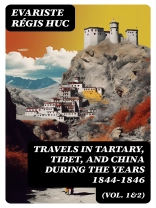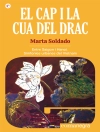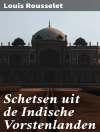In ‘Travels in Tartary, Tibet, and China During the Years 1844-1846, ‘ Evariste Régis Huc presents an intricate narrative that transcends mere travelogue, embodying elements of adventure, ethnography, and cultural analysis. Spanning two volumes, Huc’s work offers an invaluable glimpse into the societies and landscapes of Central Asia and Tibet, skillfully weaving vivid descriptions with insightful commentary on local customs, religions, and the geopolitical climate of 19th-century Asia. His poetic prose reflects Romantic ideals, while the detailed observations position the text within the broader context of Western exploration during this era, offering a bridge between East and West amid rising colonial interest. Huc, a French missionary and explorer, was profoundly influenced by his experiences in the Far East, which ignited his curiosity and respect for its diverse cultures. Imbued with a keen sense of observation and a desire to foster understanding across cultures, Huc’s travels were not merely geographical but also spiritual and philosophical. His background in the Catholic Church played a significant role in his reflections on the societal and religious dimensions of the regions he traversed. This work is highly recommended for those interested in the intersections of travel, culture, and religion. Huc’s travels illuminate the richness of Eastern traditions and offer a nuanced perspective that encourages modern readers to appreciate the complexities of these societies, making it a compelling read for historians, travelers, and cultural enthusiasts alike.
Over de auteur
Évariste Régis Huc, a French Catholic priest, missionary, and traveler, is most widely recognized for his exploratory works in Asia during the mid-19th century. Born on August 1, 1813, in Toulouse, France, Huc entered the priesthood with an ardent desire to spread Christian teachings abroad. In the course of his missionary endeavors, he became a member of the Lazarist order, which focused on preaching and charitable works. Huc’s profound interest in foreign cultures led him to embark on a notable journey through the vast regions of Tartary, Tibet, and China between 1844 and 1846. His experiences and observations were meticulously documented in his seminal work, ‘Travels in Tartary, Tibet, and China During the Years 1844-1846′ (Vol. 1&2), which not only captivated the European imagination with exotic descriptions of the East but also constituted an important ethnographic and geographical account of the time. The allure of Huc’s narrative style, combined with the depth of his insights into the religious and social customs of the regions he visited, cemented his reputation as both a scholar and a raconteur. His contributions to the understanding of Central Asian culture and history are considered invaluable, and his books continue to be referenced by researchers and enthusiasts of Asian studies. Huc’s literary legacy endures as a testament to the rich tapestry of world civilizations and the enduring human spirit of exploration.












